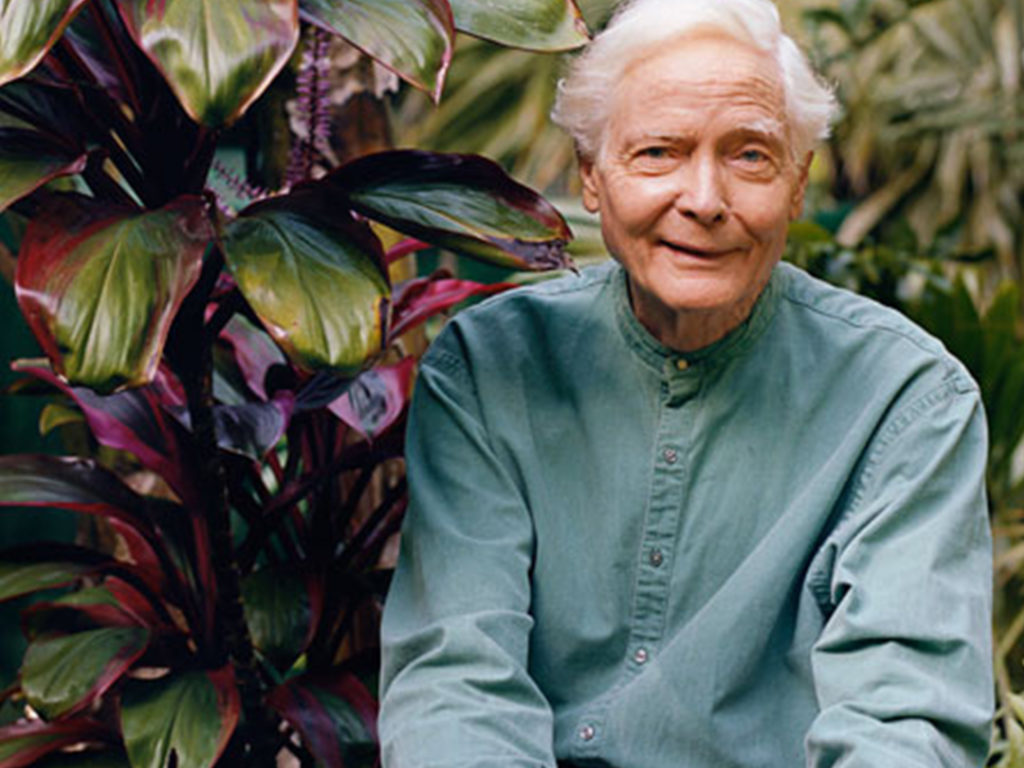William Merwin had a deep knowledge of the world. He was an autodidact, a poet who prided himself on making his way outside of the academy. He had gone to Princeton, but didn’t think much of the university, though he revered his teachers, John Berryman and R. P. Blackmur, who encouraged him to go his own way. He took their advice. When he was young, he looked up to Ezra Pound and Robert Graves, who took an interest in him, and, like them, he decided to figure things out for himself. He wasn’t a teacher, at least in any formal sense. He had the crankiness of people who learn everything on their own.
He was a poet, a prose writer, and a translator. He was completely sure about his vocation. He was the most international of American poets, and the most down to earth, literally: he knew more about the natural world than anyone else I’ve ever known. He had a kind of homespun wisdom, though he was so handsome that it sometimes seemed as if Orpheus had walked into the room. I loved being with him.
I met him in 1983. I can place the date exactly because it was the night before he and Paula got married. They invited me out for a drink. While we were talking, it came out that they were getting married the next day. Don’t you have better things to do tonight, I wondered. No, they wanted to talk to me about poetry. Then they invited me to the wedding. I decided to go and, for years, afterwards, William teased me about crashing his wedding. I’m so glad I did. It was an occasion of great quiet joy. We were in the presence of two people who really had found the great love of their lives.
My first visit to his land in Hawaii was when I interviewed him for The Paris Review’s Art of Poetry series. Every morning we talked the morning away. In those days, you could see the ocean from his living room, though later the view was covered by pine trees. “I can always go down to see the sea,” he said. He was over fifty when he moved to Hawaii. He discovered it and it discovered something in him. He found a place, a way of being to believe in. I found the landscape too overwhelming write in. He dug in—tending the land, tending his poetry.
He was an evangelist of nature. He believed that plants and trees had their own personalities, and he held this belief matter-of-factly. He had a slightly misanthropic side—he couldn’t stand what we were doing to the planet—and found consolation in his dogs, whom he adored. There were always three or four of us when we walked.
William Merwin was an American original. He is like a great pine tree that has fallen. His work is going to live on, but I can’t get over his loss.
Edward Hirsch is a poet and critic.
from The Paris Review https://ift.tt/2CpjgAY

Comments
Post a Comment